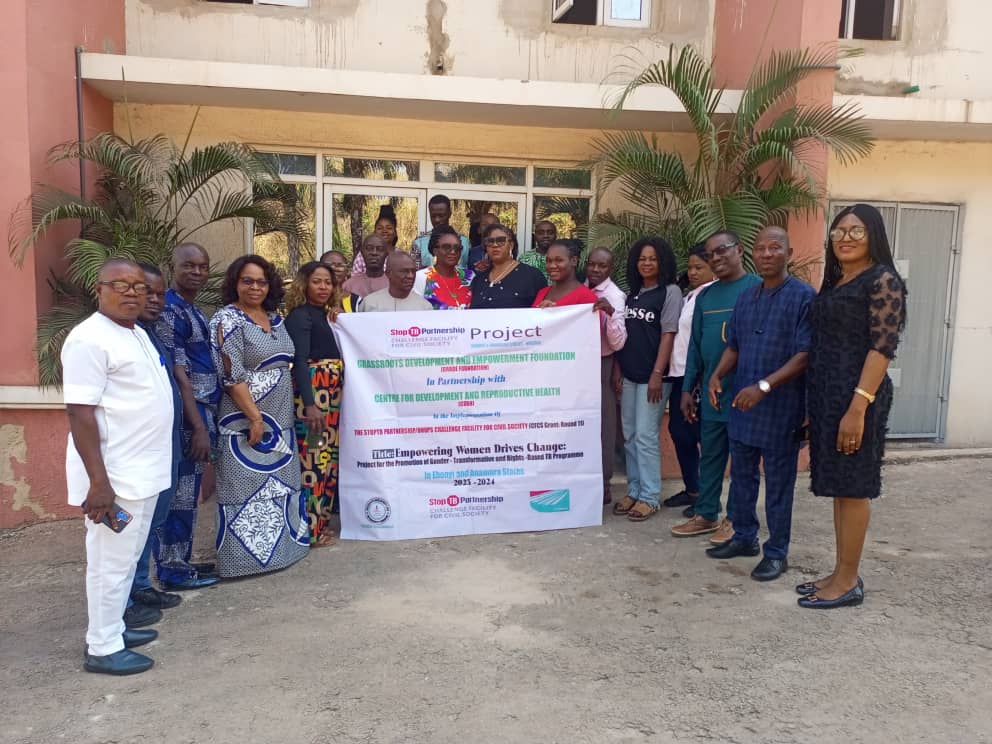Lawrence Nwimo, Awka
A one-day orientation on Gender and Human Rights on Tuberculosis for media practitioners from Anambra and Ebonyi States has ended in Enugu, with a call for the press to champion public education on Tuberculosis (TB) control.
Organised by the Grassroots Development & Empowerment Foundation (GRADE Foundation) in collaboration with the Centre for Development & Reproductive Health (CORH), under the auspices of the STOP TB Partnership Challenge Facility for Civil Society, the program drew participation from journalists, on-air personalities, bloggers, and content creators representing various media outfits in Anambra and Ebonyi states.
In his welcome remarks, the Executive Director, GRADE Foundation, Patrick Amah, said the project is aimed at involving more women and girls who easily fall victims of gender and human rights related issues in TB Control with the help of the print, electronic and social media in educating and enlightening the public.
He revealed that TB is the third leading cause of death among women of reproductive age while research has it that women are greatly affected by stigma and discrimination within the family, healthcare facilities and the communities.
While providing an in-depth training on the Gender & Human Rights Training Manual for TB Programs, the Executive Director, Center for Development and Reproductive Health, Dr. Isaac Olobu, outlined factors making women vulnerable to TB, including poverty, poor nutrition, low socio-economic status, living with HIV, delayed care-seeking, and fear of being disengaged from their employment if they have TB among others.
Dr. Olobu urged the participants to communicate to the public the contagious nature of TB which is also curable, emphasising the role of overcrowding, poor ventilation, and inadequate coughing hygiene in its spread.
Dr. Olobu urged the participants to communicate to the public that although TB is a contagious disease that could be contracted through coughing, sneezing, singing and laughing, it is also curable but its spread could be increased through overcrowding, poor ventilation and poor coughing hygiene.
Expressing gratitude on behalf of the participants, Jacob Ogodo, pledged to leverage their professionalism to disseminate insights gained from the workshop.
Group work session, development of an Operational Communication Work Plan by the journalists on Gender & Human Rights TB programming formed highlight of the training.

